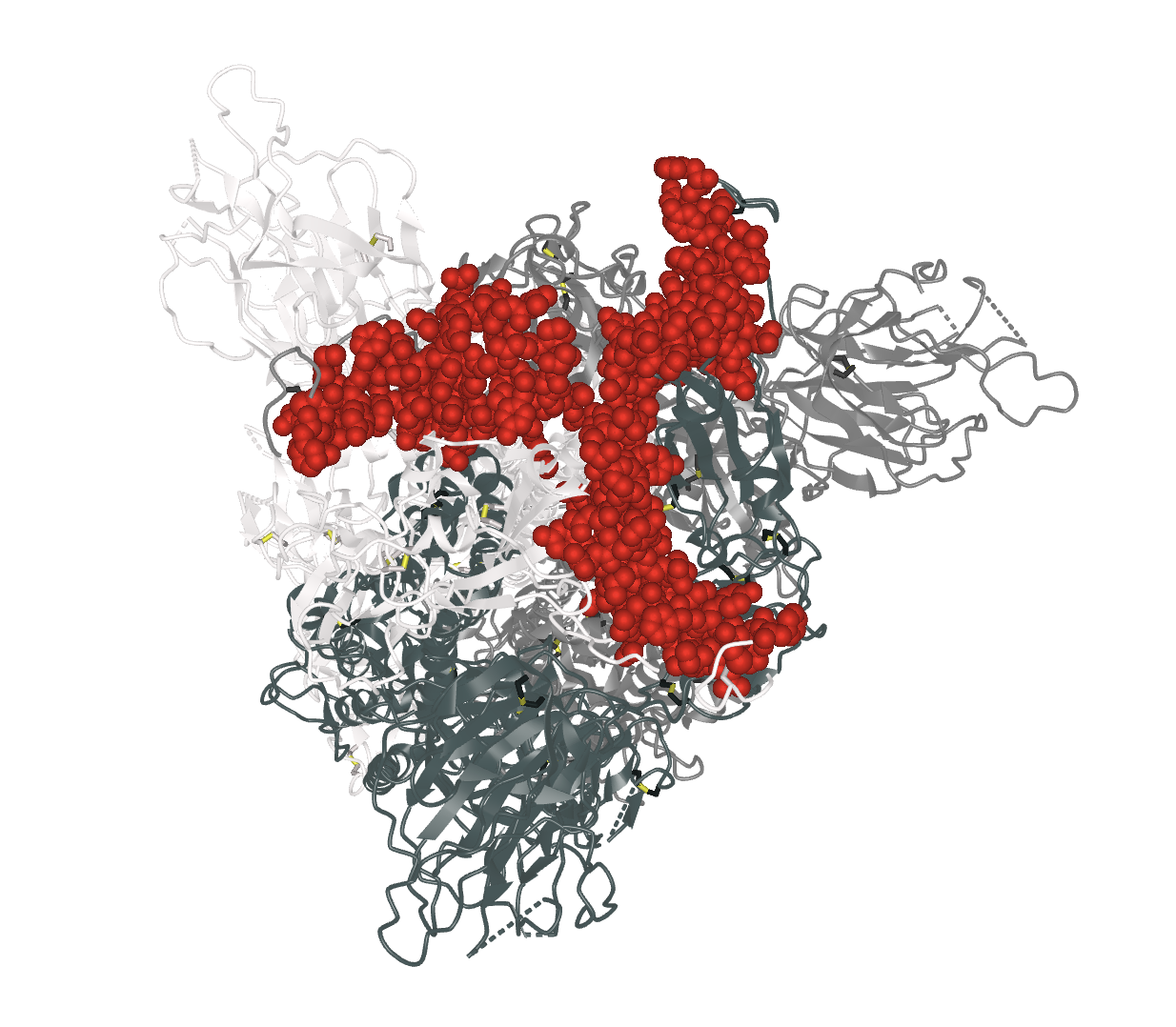A global collaboration enabled a first-of-its-kind comparison of candidate COVID-19 antibody treatments and provides a framework for rapid identification of the most effective treatments during future pandemics.
SAN ANTONIO (June 16, 2025) — The global Coronavirus Immunotherapy Consortium (CoVIC) analyzed more than 350 human monoclonal antibodies against SARS-CoV-2 in side-by-side comparison studies. Results were uploaded throughout the COVID-19 pandemic to a freely available database, and now the CoVIC team has published a comprehensive analysis in Cell Reports.
Texas Biomedical Research Institute is proud to have played a key role in this global collaboration led by Professor Erica Ollmann Saphire, PhD, at the La Jolla Institute for Immunology. During the height of the pandemic, Texas Biomed researchers worked around the clock to test the effectiveness of hundreds of antibodies in a mouse model developed at Texas Biomed in search of those that could help treat COVID-19.

Such rigorous, side-by-side testing of antibodies from diverse sources is rare. Funders, companies and labs around the globe teamed together to quickly ascertain which antibodies were the most potent and should be further developed during a global crisis. CoVIC builds on a similar framework Dr. Saphire established to respond to Ebola virus and other hemorrhagic fever outbreaks.
“With collaboration, you can achieve anything,” said Texas Biomed Professor Jordi B. Torrelles, PhD, one of the principal investigators on the project. “Now that this consortium has been established and proven, we will be able to respond more quickly to future threats.”
The COVID-19 crisis is now well in the rear-view mirror, but the potential for a pandemic caused by another coronavirus remains a present threat. Knowing what antibodies can work – usually several in combination in a so-called cocktail – against such viruses will be vital to swiftly protecting those who fall ill and are at greatest risk. CoVIC especially sought to identify affordable antibody cocktails that can help those in low- and middle-income countries.
“This work is continuing to guide studies for updated antibody cocktails based on the lessons learned and how the virus continued to evolve,” said Professor Luis Martinez-Sobrido, PhD, the other principal investigator of the project at Texas Biomed.
Hundreds of studies
During the initial months of the pandemic, a large team of researchers at Texas Biomed determined that a humanized mouse model would accurately help study therapies, antivirals and vaccines against SARS-CoV-2. Their work was published in Nature Communications in the fall of 2020 and raised awareness about Texas Biomed’s expertise in animal models and high biocontainment research. Shortly thereafter, the team received a grant from the Gates Foundation to support their participation in CoVIC.
“We did hundreds of studies as part of CoVIC,” Dr. Torrelles said. “Each one lasted 10 days. We evaluated eight antibodies at a time. As soon as one set was done, we started the next – it was nonstop for a year and a half.”
Apples-to-apples comparison
The comprehensive study is unique for several reasons. Antibodies were gathered from 61 contributors that would not otherwise have been analyzed in the exactly in the same way to allow a true apples-to-apples comparison. Every antibody was given a code, so none of the researchers performing the experiments knew what antibody they were testing.
“We were completely blind to every single antibody, we did not know where these antibodies came from,” Dr. Martinez-Sobrido said. “That eliminated the chance of unintentional bias, which is important when comparing potential therapeutics from different sources.”
By having so many antibodies, the team could quickly learn about groups of antibodies that share specific features or characteristics – most importantly how they bind to the virus to neutralize it. This global overview now allows them to predict how new antibodies are likely to perform, especially against new virus variants, and speed up the process for therapeutic development.
“The CoVIC antibody database can also help develop machine learning models for helping identify potential therapies, which will save time and resources going forward,” Dr. Torrelles said.
Headquartered at the La Jolla Institute of Immunology, CoVIC was funded largely through philanthropic organizations. It was a key initiative of the COVID-19 Therapeutics Accelerator funded by the Gates Foundation (INV-006133), Wellcome, MasterCard Impact Fund and others. Funding was provided directly to Texas Biomed by the Gates Foundation (INV-019155). Additional funding for CoVIC was provided by the National Institutes of Health’s National Institute of Allergy and Infectious Diseases. Additional lead collaborators contributing to CoVIC include Duke University (funded by the Gates Foundation INV-084289), University of Texas Medical Branch, University of Wisconsin-Madison, Carterra and Nexelis (funded by the Gates Foundation INV-017270).